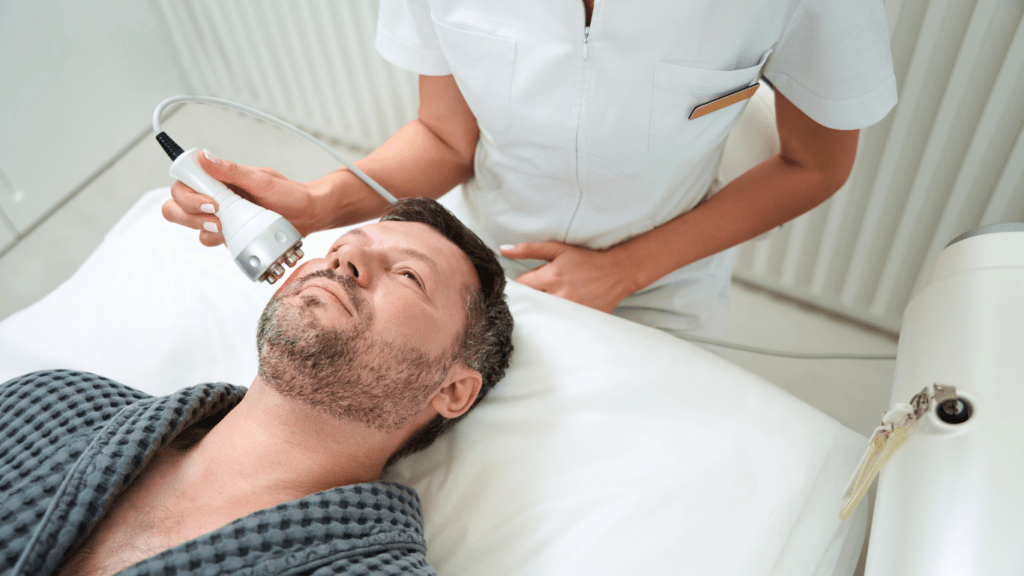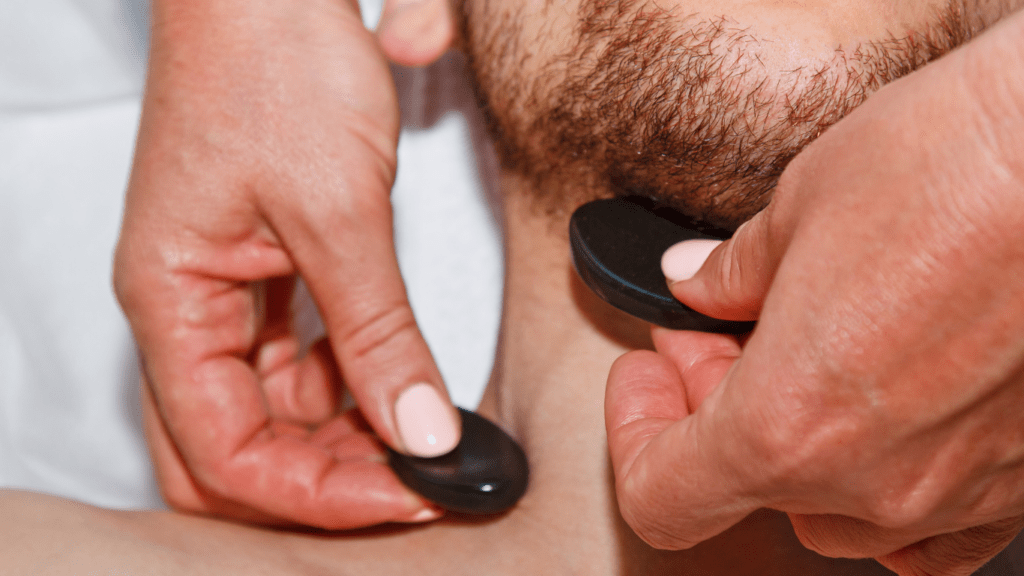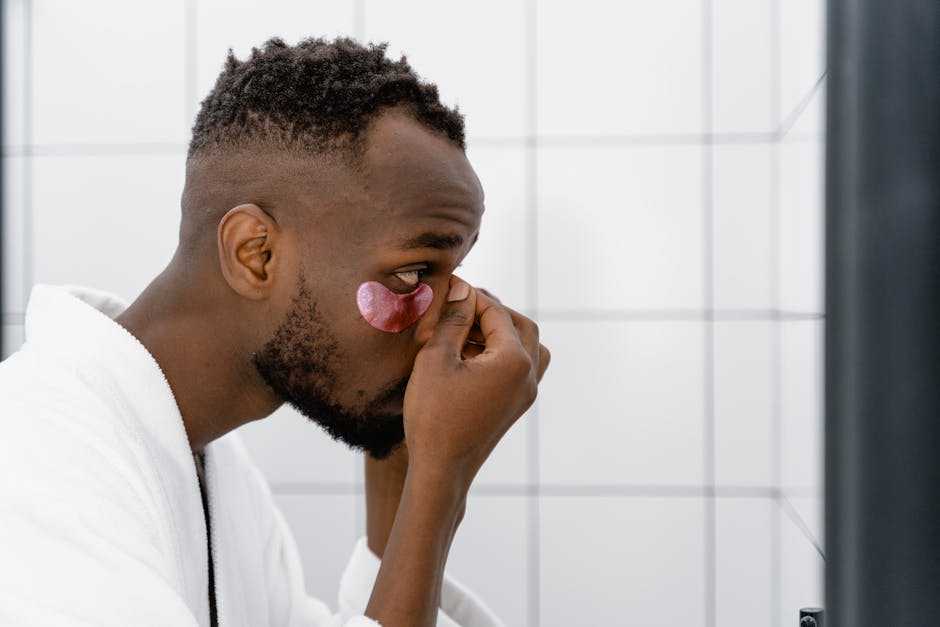Understanding the Aging Process in Men
Aging affects men in various ways, from changes in physical appearance to shifts in energy levels. Understanding the underlying factors can guide more effective anti-aging strategies.
The Role of Genetics in Aging
Genes play a crucial role in how men age, influencing skin elasticity, hair graying, and even the onset of wrinkles. While lifestyle can alter the aging process, genetic predispositions often determine the baseline.
For example, if a family has a history of early hair loss, a man may notice thinning hair in his 30s or 40s. The same applies to conditions like sagging skin or age spots.
The Impact of Lifestyle Choices
Lifestyle choices significantly impact aging. Smoking and excessive alcohol consumption accelerate aging, causing skin dryness and wrinkles.
An unhealthy diet rich in sugars and processed foods contributes to inflammation, speeding up the aging process. Regular exercise, in contrast, boosts circulation, promotes collagen production, and helps maintain muscle mass.
Sunscreen use prevents UV damage, a major cause of premature aging.
- Smoking: Leads to reduced blood flow and collagen production
- Alcohol Consumption: Results in dehydration and increased wrinkles
- Unhealthy Diet: Causes inflammation and oxidative stress
- Regular Exercise: Improves skin health and maintains youthful appearance
- Sunscreen: Protects against UV-induced aging
Understanding these elements helps tailor anti-aging routines to individual needs, resulting in more effective outcomes.
Key Anti-Aging Tips for Men
Maintaining a youthful appearance requires effort and dedication. Here are essential tips to help men combat the signs of aging effectively.
Importance of Skin Care
Proper skin care significantly impacts the aging process. Using a high-quality moisturizer daily helps prevent dryness and wrinkles. Men should also invest in a good sunscreen with at least SPF 30 to protect against UV damage.
Incorporating a gentle exfoliant once a week removes dead skin cells, promoting regeneration. Regularly using an antioxidant serum, like one with Vitamin C, can further enhance skin health by neutralizing harmful free radicals.
Healthy Eating and Hydration
Nutrition and hydration play crucial roles in anti-aging. Consuming a balanced diet rich in vegetables, fruits, lean proteins, and healthy fats provides essential nutrients for skin health and overall well-being.
Omega-3 fatty acids in fish and nuts help maintain skin elasticity. Drinking at least 8 glasses of water daily keeps the skin hydrated and flushes out toxins. Limiting sugar and processed foods reduces the risk of skin inflammation and premature aging.
Regular Physical Activity
Staying active is vital for looking and feeling young. Regular physical activity, such as jogging, swimming, or weight training, improves circulation and promotes healthy skin.
Exercise enhances muscle tone and bone density, countering age-related muscle loss. Engaging in activities like yoga or Pilates improves flexibility and balance, reducing the risk of injury.
Aim for at least 150 minutes of moderate aerobic activity weekly for optimal benefits.
To maintain a youthful look, men should integrate these practices into their daily routines. Consistency in skincare, nutrition, and exercise not only slows the aging process but also boosts overall health and vitality.
Advanced Skin Care Techniques
Men seeking to maintain youthful skin can turn to advanced techniques. These methods offer effective ways to address signs of aging.
Anti-Aging Products and Their Ingredients
Anti-aging products contain specific ingredients targeting skin aging issues. It’s essential to understand which components deliver the best results.
- Retinol: This vitamin A derivative boosts collagen production and accelerates cell turnover. It’s effective in reducing wrinkles and fine lines.
- Hyaluronic Acid: With its ability to retain moisture, hyaluronic acid can plump the skin, making it appear smoother and more hydrated.
- Vitamin C: An antioxidant, vitamin C brightens skin and reduces the appearance of dark spots by neutralizing free radicals.
- Peptides: These short chains of amino acids stimulate collagen and elastin production, promoting firmer skin.
Professional Treatments for Men

Advanced skincare also involves professional treatments. Experts offer various options tailored for men to combat aging signs effectively.
- Chemical Peels: These treatments remove the outer skin layer, promoting new skin growth. They reduce wrinkles, fine lines, and pigmentation.
- Microdermabrasion: This procedure exfoliates the skin using tiny crystals, improving skin texture and tone. It is suitable for minimizing pores and surface wrinkles.
- Laser Therapy: Laser treatments target deeper skin layers, encouraging collagen production and reducing age spots and wrinkles.
- Botox and Fillers: Injectables like Botox relax facial muscles, reducing wrinkles. Dermal fillers add volume to areas such as cheeks and jawline, enhancing facial contours.
Advanced techniques in skincare provide effective ways to maintain youthful skin.
The Role of Mental Health in Aging
Mental health has a significant impact on the aging process. Chronic stress, poor sleep, and mental health issues can expedite aging signs in men.
Stress Management Techniques
Managing stress reduces the visible effects of aging. Practicing mindfulness meditation can lower stress levels. Studies from the American Psychological Association show meditation helps enhance mental clarity and promotes overall wellness.
Also, physical activities like yoga and tai chi offer stress relief while improving flexibility and strength. Additionally, engaging in hobbies such as painting or reading can provide mental relaxation and reduce stress-induced aging.
Importance of Sleep
Quality sleep is crucial for maintaining youthfulness. According to the National Sleep Foundation, adults need 7-9 hours of sleep per night. During deep sleep, the body’s repair mechanisms activate, regenerating skin cells and reducing wrinkles.
Lack of sleep increases cortisol levels, which can break down collagen, leading to sagging skin. Establishing a consistent sleep schedule and creating a calming bedtime routine can promote better sleep quality, supporting the body’s natural anti-aging processes.


 Edward Strzelecki is a valued article writer at Body Care And Matter, known for his straightforward and accessible approach to health and wellness topics. With a focus on clarity and practicality, Edward's writing provides readers with easy-to-understand information that they can apply in their daily lives.
Edward Strzelecki is a valued article writer at Body Care And Matter, known for his straightforward and accessible approach to health and wellness topics. With a focus on clarity and practicality, Edward's writing provides readers with easy-to-understand information that they can apply in their daily lives.

